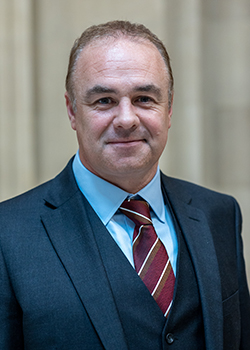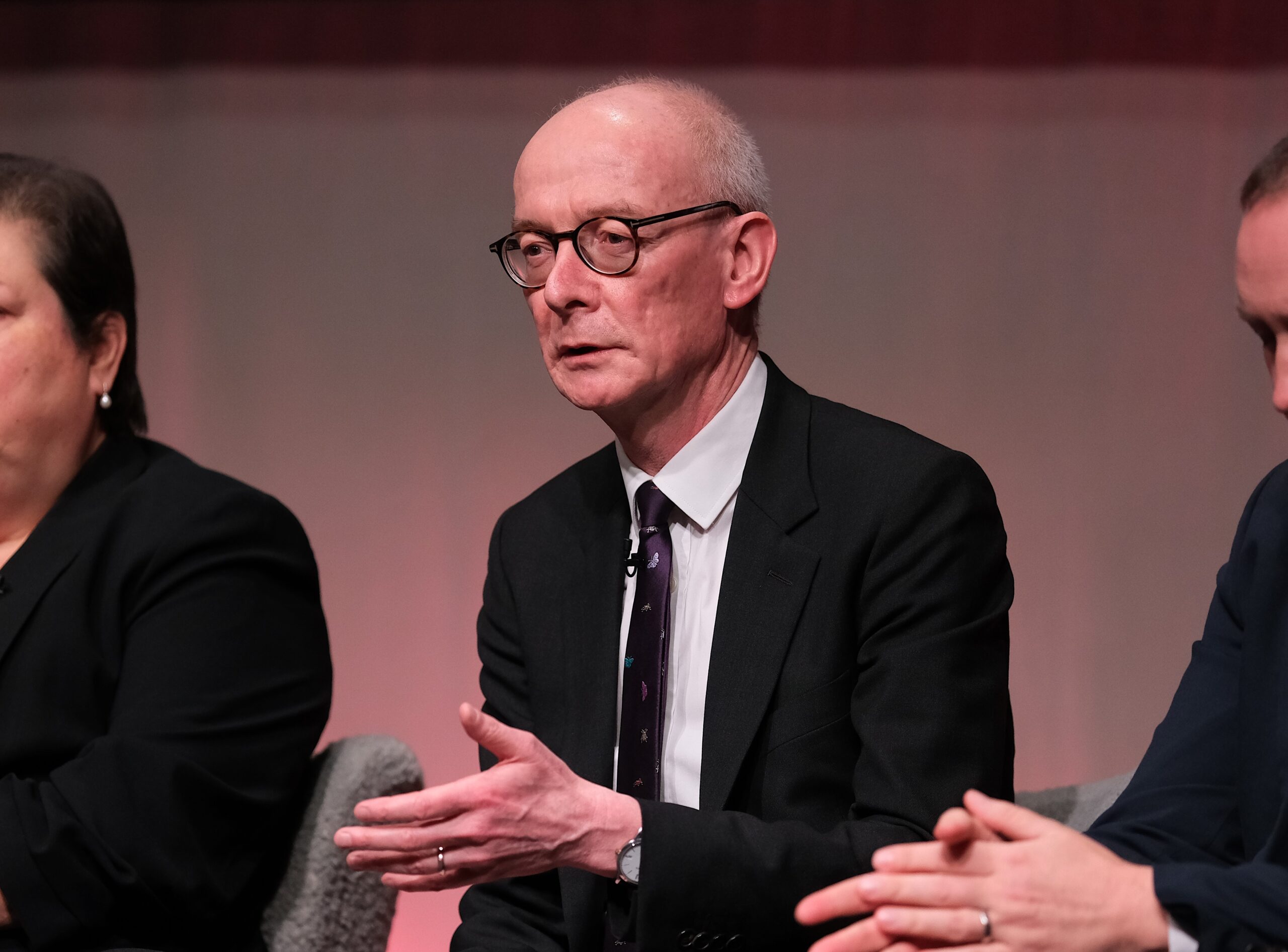Our breakthrough on pay – and why the whole civil service pay system must be rebuilt

In April, the UK government published its approach to civil service pay for 2023/24 without any meaningful dialogue with the civil service trade unions, with FDA General Secretary Dave Penman describing it as leaving the “civil service with the worst pay deal in the public sector by far, showing utter contempt for the vital work they do to support the government and deliver public services that the country relies upon”.
As a result, at an emergency meeting on 19 April, the union’s Executive Committee agreed to begin preparations for a national ballot on pay – the first time the union had taken such action in forty years. Penman said that the Committee had wanted “to send the clearest signal. A signal that FDA members, who pride themselves on their belief in pragmatism and engagement, are left with no choice when a government treats them in this way.” In a matter of weeks, led by the union’s Assistant General Secretary Amy Leversidge, the FDA had to undertake the complex preparations required to ensure the ballot met all statutory requirements before a formal launch of the campaign at the union’s Annual Delegate Conference in May.
Explaining why the FDA had been left with no choice but to ballot on national strike action, Penman asked in his speech to conference, “how does this new government of Rishi Sunak demonstrate that it values its own employees? It may not be pursuing the 91,000 job cuts, but withdrawing an idiotic, undeliverable policy is not, in my book, handing out favours. Workloads are still increasing, and resources are frozen as inflation delivers real term cuts to budgets.”
He continued: “Now having been told you’re a lazy, woke, inefficient, Remainer, activist, snowflake, you are also a Machiavellian genius, able to unseat ministers and undermine the settled will of government. I don’t know about you… but I’ve had enough of this. At some point we need to say enough is enough. Ministers need to demonstrate they value civil servants.”
“Workloads are still increasing, and resources are frozen as inflation delivers real terms cuts to budgets”
Formal notifications of the union’s intention to ballot for strike action were issued to employers across the UK civil service on 23 May, with ballot papers due to be issued to members seven days later. Later that week, however, and following some preliminary discussions, the government invited the FDA and fellow civil service trade unions to formal talks to discuss the issues behind the industrial dispute. As a result, the FDA Executive Committee agreed to pause the strike ballot to allow space for those talks to take place.
There followed a week of intensive negotiations, which ultimately resulted in a revised package of measures of including:
- An addendum to the pay remit guidance to allow employers to make a £1,500 non-consolidated payment to employees in the delegated grades (in addition to the 4.5% + 0.5% already in the guidance).
- A commitment to make no changes to the Civil Service Compensation Scheme before 2025, alongside a commitment to avoid compulsory redundancies.
- A personal commitment from the Minister for the Cabinet Office to intensive engagement with the FDA on the introduction of capability-based pay for the Senior Civil Service, which is a ministerial priority.
- As the SCS is not covered by the pay remit, the Minister would write to the Senior Salaries Review Body to update it on the action he had taken and explain the rationale for it.
The FDA Executive Committee subsequently met to discuss the package of measures and agreed that it represented a significant improvement on the government’s original framework for civil service pay and addressed most of the factors that had led the union to enter an industrial dispute. Therefore, the Committee took the decision to cancel the proposed ballot.
Explaining the Committee’s decision, Penman stated that “industrial action was never an end in itself”, and that the change in attitude and commitments from the government represented “a step-change in the engagement with the FDA and other trade unions”.
“Our decision to ballot sent a clear message to government about our members’ anger”
“There is clearly still more to do – this year and in the longer term – but that should not detract from the significant achievement in persuading the government to revise its offer. The FDA’s decision to ballot for national industrial action over pay, the first time in over 40 years, sent a clear message to government about our members’ anger. Ultimately, the government listened.”
What next for civil service pay?
What next for civil service payFDA National Officers are now in dialogue with employers to ensure the £1,500 payment is made as quickly as possible, alongside the usual negotiations on pay for 2023/24. They are also working through complex issues, including the interaction with Universal Credit and Student Loan repayments, to ensure that the payment meets its objective of helping people deal with the cost-of-living crisis. The union is also pressing for employers outside the remit process – including some cultural institutions, Parliament, and the devolved administrations – to at least match the package put forward by the UK government.
Alongside this, the FDA will be pursuing its normal pay objectives for this year, including pressing for employers to use all the flexibilities available under the remit guidance, such as submitting business cases to fund longer term reforms. FDA members will be balloted in branches and sections as usual when these negotiations conclude. The decision by the Executive Committee does not preclude the possibility of a local industrial dispute, as we have seen in the Fast Stream, should circumstances dictate.
For colleagues in the Senior Civil Service, not covered by the remit process, the FDA has written to the Senior Salaries Review Body (SSRB) asking that it is cognisant of the decision on pay for delegated grades when it makes its recommendation, particularly the potential for exacerbating existing problems of overlapping and leapfrogging. The Minister for the Cabinet Office has also made a personal commitment to intensive work to prepare for the implementation of capability-based pay. FDA General Secretary Dave Penman argued that the government’s response to the recommendations of the SSRB would be “the true test of whether they are seeking to ensure that all civil servants are recognised for the incredible work they have been doing on its behalf and the exceptional pressure that the cost-of-living crisis has placed on them”.
More broadly, the FDA will be working in the coming months to set out a coherent vision for the future of civil service pay, the architecture of which remains broken and unreformed for thirty years. Our FDA Summer Intern, Fran Milner, will be leading one strand of this work as we work with partners to set out the need for a new deal for civil servants, and to convince the government of the need for urgent, radical reform.
Pay in the devolved nations
Members working for employers in the Northern Ireland Civil Service, the devolved Scottish sector or devolved Wales are not covered by the pay remit and were not included in the proposed Industrial Action ballot. FDA National Officer for Scotland and Northern Ireland Allan Sampson, and FDA Cymru|Wales National Officer Gareth Hills, update members on pay in their respective nations.
 Scotland
Scotland

In Scotland, pay negotiations are now underway with most employers. However, Scottish Ministers’ public sector pay strategy for 2023/24 recommends a “central metric” of 3.5% for ‘cost of living’ rises.
FDA representatives met with the new Deputy First Minister on 26 April to make clear that such offers to staff will not be acceptable to our members, and we continue to press for meaningful rises which acknowledge the impact of erosion of pay over the last decade, the current cost of living crisis on members’ household budgets and the pay awards across the rest of the public sector.
Northern Ireland
In Northern Ireland, the ongoing political impasse means members have not seen any meaningful pay rise for 2022/23. As such, we don’t see pay for last year as having been concluded and are in the process of setting our updated pay demands for 2023/24, acknowledging the very challenging budget that was, in the absence of locally elected ministers, recently set by the Secretary of State.
The UK pay remit guidance does not apply to members working for employers in Northern Ireland Civil Service or the devolved Scottish sector. As such, those members were not included in the original plans for the national industrial action ballot. However, this does not prevent them from taking local action should fair settlements not be forthcoming as negotiations conclude.
 Wales
Wales

Although FDA and Prospect submitted a joint pay claim in February 2022, delays to ministerial sign-off of the pay remit for Welsh Government meant that negotiations for 2022/2023 pay did not commence until early September. This concluded with a final offer from Welsh Government for a one-year deal of:
- A 4% increase to all pay points at all grades to Grade 7,
- A 4% consolidated award for Grade 6 points 1 and 2, and
- A combined award for Grade 6 points 3 and 4 – a 2% consolidated increase and a 2% non-consolidated lump sum.
Welsh Government argued the Grade 6 split award was necessary to address an overlap between Grade 6 and Deputy Director (SCS 1) salaries.
We met with the Finance Minister, Rebecca Evans MS, to lobby for an improved offer to match other parts of the Welsh public sector – notably health and education. Evans stated she was unable to reopen the settlement and that there was no additional money available for civil service pay. FDA Cymru|Wales branded this “doubly disappointing” and running contrary to Welsh Government’s declared intent of ‘One Public Service Wales’ and achieving pay cohesion across the Welsh public sector.
Following FDA intervention, other devolved bodies implemented pay awards using the headline figure of 4% but without the split award at the top of Grade 6 – everyone received fully consolidated awards.
After the UK Government’s announcement of the £1,500 cost of living payment to delegated civil servants, FDA Cymru|Wales contacted Welsh Government officials requesting clarity on the situation in devolved Wales, and they agreed to enter negotiations on the potential implications of the one-off payment.
We again argued that civil servants cannot be treated the worst out of all public sector employees in Wales, and we expected pay to be at least in line with the UK civil service.
Welsh Government has now confirmed that all staff below the SCS on Welsh Government terms and conditions, and all agency workers, in post on 31 March 2023 and 30 June 2023 will receive the £1,500, regardless of working hours. Officials will also write to arm’s length sponsored bodies to make clear they are expected to make the payment.
FDA Cymru|Wales welcomes this approach, demonstrating the value of Social Partnership, and that our call for ministers in Wales to show they value civil servants has been heard and visibly acted on.
While negotiations for pay in 2023/24 are yet to start, the FDA and Prospect have submitted a joint pay claim calling for a consolidated award equal to the value of current RPI plus 2%, and parity with awards made to other public sector employers which are above the pay remit.
Related News
-

Government’s plans for civil service reform “lack substance”, says FDA
The FDA has criticised the government’s rhetoric surrounding the announcement of a series of civil service reforms – on performance-based pay, fast track exits for underperformers, and performance management – by Chancellor of the Duchy of Lancaster Pat McFadden.
-

9% pay rise for NI civil servants ‘genuine attempt to tackle pay erosion’, says FDA
The FDA is recommending to members to accept the Northern Ireland civil service pay offer for 2024/25, which represents a 9% increase over a 20-month period.
-

FDA calls for widespread reform across the civil service in New Year message to government
The FDA has shared its annual New Year message to the government, in which FDA Assistant General Secretary Lauren Crowley outlines the need for significant reform across the civil service.